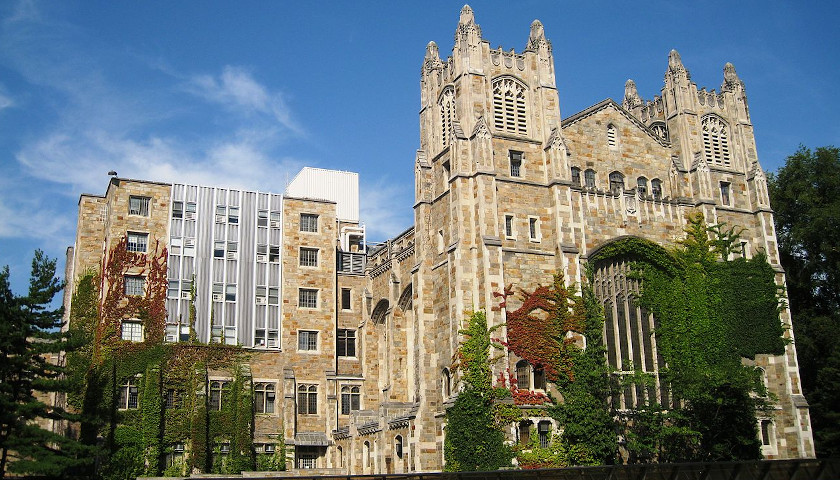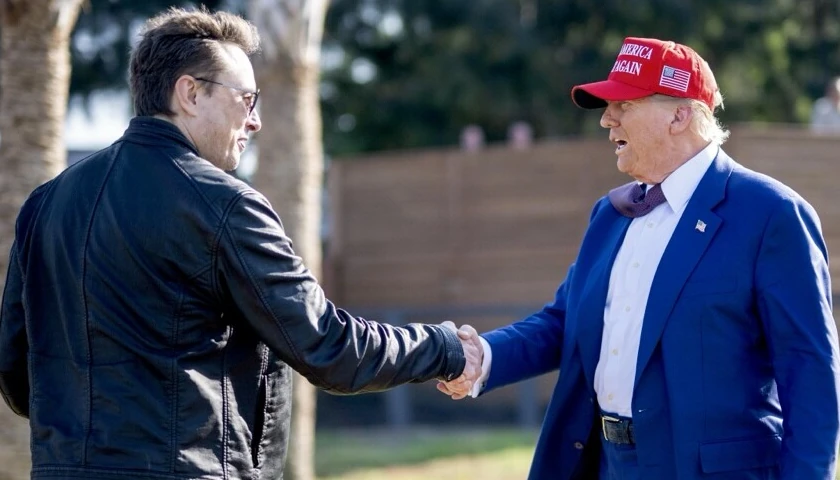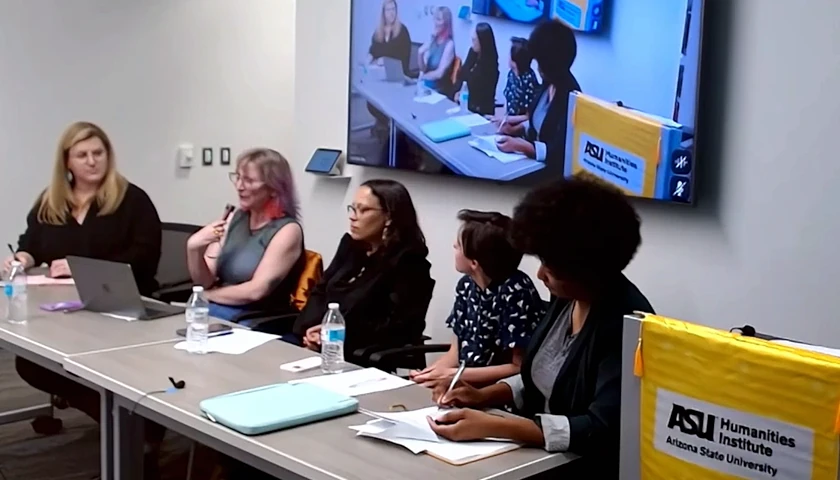by Derek Draplin
Public and private universities across the country are increasingly offering diversity-oriented certificates that are often costly for students and sometimes faculty.
The programs, commonly referred to as Diversity, Equity, and Inclusion (DEI) certificates, are offered by prestigious public and private universities and colleges across the country, charging students sometimes thousands in tuition. The DEI certificates are often obtained in addition to more traditional undergraduate and graduate degrees.
Schools that offer similar DEI certifications include Cornell University, Harvard University, the University of Southern California, Temple University, and the University of North Dakota, among others.
While the universities offering DEI certificates maintain they are useful for multiple purposes in professional life, it’s unclear the value such certification – or how universities measure that value – adds to students’ educations other than forms of social justice activism that tend to be ideological and sometimes partisan in nature.
Critics of DEI certification programs say they use definitions of diversity that are too narrowly defined and end up just preparing participants to be ideological activists in the workplace.
Patrice Onwuka, a senior fellow with the Alliance for Charitable Excellence, which says it promotes excellence in philanthropy, questioned the value of DEI programs for participants and the businesses or organizations they go to work at.
“When we think of the cost of college today … graduating with tens of thousands of dollars in debt, even graduating with advanced degrees and compiling six figures of debt, adding to that a certificate that is supposed to make you specialized but really is just formalizing a lot of your activism to me makes me wonder what that value is to the student but also wonder about the outcomes of the organizations and companies that they’re going to,” Onwuka told The Center Square.
“There is an underlying assumption here that we should be challenging – that diversity very narrowly defined as gender, race and sexual orientation is good for organizations and good for companies,” she added, noting that a broader definition of diversity that goes beyond race and gender would be more useful to businesses and organizations.
The University of Colorado, Colorado Springs (UCCS) offers a “Graduate Certificate Program in Diversity, Social Justice and Inclusion” through the school’s Sociology Department and the Matrix Center for the Advancement of Social Equity and Inclusion, which costs graduate students over $2,000 for 12 credit hours.
“This nationally accredited, university-backed program benefits those who are seeking the advanced skills, knowledge and strategies to implement diversity-oriented pedagogy, programs, practices and policies that can be applied in educational, community, corporate and public settings,” the program says.
UCCS did not return a request for comment about how it measures the value and success of their certificate program.
Georgetown University in Washington, D.C., offers an “Executive Certificate in Strategic Diversity & Inclusion Management” that helps to “gain the skills and insights needed to support a strategic, sustainable approach to diversity and inclusion management.” The certification requires six courses over six months and costs almost $8,500.
The University of Georgia offers a 15-credit graduate certificate – equivalent to one semester – that it says will help students “develop multicultural and social justice leadership skills.”
The University of Michigan’s Rackham Graduate School in Ann Arbor, Mich., offers a Professional Development DEI (diversity, equity and inclusion) Certificate that is “designed to prepare participants to work in a diverse environment while fostering a climate of inclusivity,” the program’s website says.
Participants in UM’s program must complete five training sessions, among them: “Creating an Inclusive Environment,” “Responding to Microaggressions,” “Demonstrating a Commitment to Diversity,” “Unconscious Bias,” and “Communicating Across Identities.”
Laura Schram, director of professional and academic development for the Rackham School, said the school assesses the DEI certificates value though students’ reflections using a tool from higher education consultant Dee Fink’s “taxonomy of significant learning.”
“Participants reflect on their learning gains in terms of new foundational knowledge, application of skills, integration of ideas, learning about self and others, changes in values or appreciation for the topic(s), and desire for continued learning,” Schram said in a statement to The Center Square. “Participants also reflect on specific action steps they plan to take as a result of each certificate offering. This continuous reflection embedded in the program helps Rackham to measure the value of each offering within our program for student learning about DEI.”
To measure the certificate’s success, students take the “Intercultural Development Inventory” assessment before and after participating in the DEI program.
“Our data shows that each cohort has grown in their intercultural competence as measured by the IDI both a substantive and statistically significant ways,” Schram said.
The National Association of Scholars, a non-profit that promotes traditional liberal arts education and academic freedom, is highly critical of programs like DEI certifications that it says are “part of the larger movement of social justice education.”
“These certificates are part of a national movement to substitute vocational training in progressive activism for education – both to propagandize students and to provide well-paid career tracks for social justice activists in higher education,” said David Randall, the organization’s research director.
In December, NAS released a study titled “Social Justice Education in America,” which details how social justice advocates have altered the ideological makeup of universities and transformed “higher education itself into an engine of progressive political advocacy, subjecting students to courses that are nothing more than practical training in progressive activism.”
Randall said while DEI certificates may have a vocational value, “the certificates have no educational value, in the sense of a liberal arts education that seeks to educate individuals to think and come to their own conclusions, or to learn about the long history of Western Civilization.”
– – –
Derek Draplin is a regional editor at The Center Square. He previously worked as an opinion producer at Forbes, and as a reporter at Michigan Capitol Confidential and The Detroit News. He’s also an editor at The Daily Caller.





